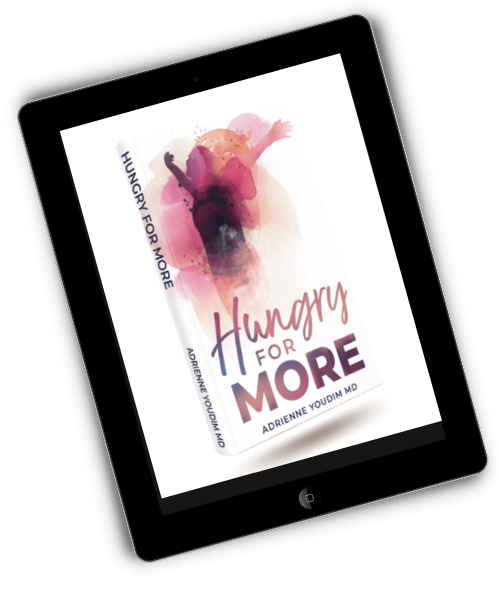Today we’re going to have a conversation about alcohol because for a long while, physicians, have been preaching and promoting the health benefits of alcohol – wine in particular – without really offering a balance in the conversation. I, personally, have done this knowingly, and I have data to support my claims; lots of data from Mediterranean countries showing health benefits to regular consumption of alcohol. Frankly, I use this data to support my own ritual but knowing and understanding all the facts is important to personal decision-making.
As I always say, knowledge is power – here’s a balanced perspective on alcohol and its effects on our well being.
Before we go any further, let me also say this – you don’t have to “be an alcoholic” to be curious and explore your relationship with alcohol. In our society, you’re either an elegant drinker, completely poised and glamorous with a glass of champagne, or you’re the guy or gal with a DUI. But honestly, there is something in between, and knowing that is really critical to having this conversation with yourself openly, honestly, and without judgment.
So as you read, I want you to question your labels. Question your biases and your judgment and if you find that you have them, be mindful that they don’t interfere with your ability to fully receive and use this information and to become better because of it.
What is the Mediterranean diet all about?
First, let’s talk about the positive data, much of which does come from the Mediterranean countries. As a little segue, I want to talk a little bit about the Mediterranean diet, because I think it’s important to understand the whole story.
The Mediterranean diet is a dietary pattern, really – not a specific diet, but a pattern – that is used in countries that surround the Mediterranean Sea; countries including Spain, France, Monaco, Italy, Milan, or Negro, Greece. A ton of data has come out of these countries, studying their diet and their lifestyle and linking it to everything, including a reduction in diabetes, heart disease, dementia, Alzheimer’s, depression, and cancer, just to name a few of the things.
The Mediterranean diet, of course, consists of lots of fruits and vegetables. It also consists of lots of whole grains. Some are really surprised to hear that this diet, in fact, is really high carb-ed, and high-quality carb that is, so it also consists of beans, legumes, high quality, high fiber grains, cereals, and bread. It also consists of the good fats – poly, and monounsaturated fats, like nuts, seeds, olives, avocados, and the oils that come from these foods. The primary source of protein in these diets is typically fish, poultry and eggs, some dairy, and very small amounts of red meat (one to two times per month).
Sweets are consumed in moderation. And of course, alcohol is consumed in moderation.
How much alcohol should you intake to achieve the benefits it possesses?
What is it about alcohol and wine in particular that we find so helpful?
Well, wine contains something called polyphenols. These are plant-based compounds that are also found in substances like berries, for example, tea, and dark chocolate, and they’ve been shown to have really powerful antioxidant properties that are beneficial for health. One of these polyphenols – resveratrol, in particular – has been shown to have positive effects on longevity and disease prevention, because of its antioxidant effects, but also its anti-inflammatory and anti-carcinogenic effects.
One thing to consider is how much? How much wine does it require to achieve these benefits?
In the Mediterranean diet, one serving is considered four ounces total for a female, and four to eight ounces total for men. Now, this discrepancy between men and women is put in there because of the way that we metabolize alcohol, but I also want to point out that there is some controversy as to whether there should be a difference between men and women but typically what is consumed in the Mediterranean diet.
Also, note that this is far less than the typical size of a US pour. Not to mention that it is one pour. So, one thing to consider is how many servings one is consuming daily or over the course of the week?
Considering Other Aspects of Lifestyle and Diet Before Staying That Alcohol Is Unhealthy
Keep in mind that alcohol is one part of the Mediterranean diet that is vastly different from the typical American or Western diet. We have to consider all the other aspects of this diet that are contributing to health, or even might be counteracting unhealthy behaviors if we were to assume that wine, for example, or alcohol consumption is unhealthy.
So for example, healthy fats, once again, are abundant in the Mediterranean diet, with the near elimination of the unhealthy fats, like beef, butter, and other saturated fats. Sweets are very low in consumption. Processed foods are exceedingly low in a Mediterranean-style diet, as compared to an American or a Western diet.
We must consider other aspects of their lifestyle. For example, high levels of physical activity and labor are still a part of these countries’ lifestyles – at least they were when the studies were done.
As always in nutrition studies, it’s hard to tease out and separate that ‘it’ factor. All of this is to say that we may not be able to extrapolate the Mediterranean experience to the US because there are other factors at play.
How Does Alcohol Affect Our Health?
Now that we’ve gotten through that, let’s take a look at the health effects of alcohol.
The data shows that alcohol use, even in moderation, is not completely benign. In fact, alcohol consumption increases the risk of multiple cancers, including breast, colon, esophageal cancer, and head and neck cancers. One fact that is really surprising is that studies have shown that even one drink per night increases the risk of breast cancer by 15% and the risk is dose-dependent, meaning that the risk of breast cancer increases with each additional drink.
The mechanism at work here might be the potential for weight gain that’s associated with excessive alcohol use. Keep in mind that, of course, alcohol is empty calories. As discussed in prior posts, alcohol also interferes with hunger hormones, making us literally more hungry the day after.
We know that weight gain is an independent risk factor for breast cancer, so maybe that’s the correlation or link. In addition, alcohol can increase estrogen and other hormones that are associated with breast cancer. And so there may be a hormonal link, which makes alcohol use more likely to be associated with breast cancer. So, there is that.
Alcohol, in much larger amounts, has been associated with other health concerns, and increased risk of pancreatitis, liver disease, and cardiomyopathy of the heart.
While we talk about the heart health benefits of the Mediterranean diet, which includes alcohol, know that excessive consumption can actually cause stretching out of the heart muscle, and over time, cause the heart muscles function to fail.
But by and large, these risks are attributed to big drinkers, people who consume frequently and excessively. And of course, there are many reasons that if you are consuming frequently and excessively, you should take notice, not the least of which, is why you might be consuming or drinking frequently or excessively in the first place.
You’re Not Alone. Dig Into The Common Humanity
If you happen to be that person, first, no judgment. Remember that we cannot shame our way into change, as the brilliant Brene Brown so eloquently says. And second, know that you’re not alone.
In 2019, nearly 15 million people in the US were classified as having alcohol use disorder, which means some degree of drinking frequently and excessively that felt not within the person’s control. That data, mind you, is from before the pandemic. All studies and experiences have shown that that number has gone up. In fact, one study showed that heavy drinking escalated by 41% in women during the pandemic. It’s not surprising, right? Given that alcohol, in essence, is a sanctioned drug but what is important here is to understand that you’re not alone.
Dig into the common humanity. Dig into the shared experience here, and meet yourself with compassion, not judgment, so that you can get the work done – the work that you can do, the work that you deserve to do for yourself, for your health, and for your mental, emotional, and physical well being.
If you don’t know where to start, reach out. Reach out to a trusted friend. Reach out to a mental health professional and get the help that you need.
The Physiology of Alcohol: Does Alchol Really Take The Edge Off?
Let’s go back through to the casual drinker because there’s more to the story there too. What is one of the most common reasons outside of socializing that alcohol is used? To take the edge off, of course – to take the edge off work, to take the edge off parenting, to take the edge off difficult relationships, and to take the edge off of difficult emotions.
Let’s look into this a little bit further. Does alcohol really take the edge off? It may help to understand a little bit about the physiology of alcohol. How does it really work?
First of all, alcohol interacts with the same receptors in the brain as benzodiazepines. These are drugs like Ativan or Xanax that are prescribed to manage anxiety over the short term. And in the short term, alcohol, like these medications, will have sedative properties: feelings of ease, feelings of disinhibition, feelings of calm, and even evokes sleep. While alcohol is known for its sedative effects, less known are its stimulatory effects, including increased heart rate, anxiety, irritability, even anger, and sometimes, violent behavior. So why is that?
The brain doesn’t really like being sedated and sleepy so in response to the initial release of sedating neurotransmitters, there is also a release of stimulating neurotransmitters or hormones in the brain. This change in neurochemistry is why people get anxious and irritable with alcohol.
These things don’t happen at the same time. The sedative qualities of alcohol do not happen at the same time as the stimulatory effects. They occur in tandem. So, one will first feel sedated and then later feel stimulated. This, of course, impacts mood but also impacts sleep so you may notice that when you drink, you experience sleepiness. People typically will feel sleepy when they first consume alcohol.
You might also notice that while you may fall asleep soon after drinking that you awaken in the middle of the night. In fact, alcohol does this by causing disruptions in sleep architecture. Alcohol actually disrupts both REM sleep and non-REM sleep and so, this disruption will prevent deep sleep and will diminish the restorative quality of sleep. Sometimes people will awaken and they’ll actually appreciate an awakening, but even if you don’t actually awaken, that sleep quality is being disturbed, making people feel sleepy and groggy the next day.
The stimulatory effects of alcohol, again, is also why drinking causes irritability and anxiety often the morning after. In fact, long-term alcohol use reduces GABA and glutamate receptors in the brain. These are neurotransmitters that help regulate mood. The change in the brain will make someone more excitable, more anxious, and more irritable overall.
Again, it shows that the brain is making changes to itself to compensate for the sedating qualities of alcohol; not to mention that alcohol in and of itself is a depressant. Here we are using a tool to help bring about a sense of ease, to “take the edge off”, but it is a depressant. Over time, it is causing the release of neurotransmitters and changes brain chemistry that causes greater anxiety and irritability, and it is affecting sleep, which in and of itself, causes depression, irritability, and anxiety, not to mention other metabolic effects.
How Alcohol Impairs Learning and Our Cognition
Another reason we drink, again, is to take the edge off of our work, whatever that work may be, right? School work or maybe work-work. One of the downsides of alcohol is its impact on cognition.
REM sleep is also a time where we consolidate memory, where we consolidate information. When REM sleep is affected, we actually impair our ability to cement down memories and cement down information; we impair our ability to consolidate information. In this way, alcohol actually impairs our learning and our cognition. In fact, studies have shown that alcohol affects our ability to acquire new information and to process this information deeply. It also slows down the rate of processing. This doesn’t only happen in the acute time frame. People do get slower reaction time, for example, gets slower when people are acutely inebriated or have drunk alcohol, but it actually affects processing overall, making it harder to learn and making it harder to focus.
Finally, we know that alcohol has other long-term effects on the brain that impacts cognition. Alcohol increases the risk of long-term memory disturbances and has been associated and linked to a higher risk of dementia, as well as, specifically, Alzheimer’s disease.
One study revealed that an average glass of wine per day may in fact shrink the overall volume of the brain. They studied individuals who drank one pint of beer or six ounces of wine per day over the course of a month and compared them to those who drank less. They showed, by doing scans or an MRI of the brain, that the brains of the drinkers appeared two years older than those who consumed half of a beer or equivalent per day. The brains of people who reported drinking three units of alcohol a day had reductions in both the gray matter and white matter of their brain, which was comparable to three and a half years of brain aging.
This study was small and had its limitations, but the fact remains that alcohol consumption does affect our cognition and does impair the structure of the brain in a way that affects not only short term information processing but also long term processing that can go on to lead to dementia and Alzheimer’s.
I just want to point out again, because we do use alcohol to take the edge off, to take the edge off of work, to take the edge off of difficult emotions, but we’re showing here that, really, what we’re doing is increasing the stress that is associated with difficult mood, with difficult work, by impairing our ability to really do that work and manage those emotions in an effective way.
The Cultural Shift In Our Relationship With Alcohol
It’s important to note that there certainly has been a cultural shift in our relationship with alcohol.
We can find alcohol at all of our gatherings, right? It’s there at our professional gatherings, at our social gatherings, at our family gatherings, at work events, at educational programs, at yoga classes, and even at kids’ birthday parties and playdates. In fact, a few months ago, I was running in a half marathon, after which I found a booth at the finish line handing out Bud Light. Honestly, it’s kind of comical; the places and spaces in which we can find an abundance of alcohol. Casual drinking has really become a part of every cultural and social space we inhabit – a shift that’s become even more pervasive during the pandemic and post-pandemic, if we can call ourselves that right now.
Ask Yourself: How and Why Are We Drinking? How Is This Affecting Our Well-Being?
I’m not really suggesting that we revisit prohibition; I don’t think that would work. I’m not suggesting even that moderate consumption is necessarily an issue. I am suggesting, though, that we take our heads out of the sand and really ask ourselves some hard questions. How and why are we drinking? How much and how often? How is this impacting our mental, and emotional well-being? If not, our physical health?
Remember that you don’t need to be drinking a Martini for breakfast to reflect on these questions, right? Your ability to reflect on these questions open-mindedly and without judgment is the window to having the kind of relationship with alcohol that you want to have. This type of radical honesty is the only way to engage in meaningful change, whether we are drinking excessively, eating excessively, texting, scrolling, binge-watching excessively, working out compulsively, or doing any of the other habitual compulsive activities that are slowly chipping away at our well being. Keep that in mind.
In good health.
Xx,
Dr. Adrienne


